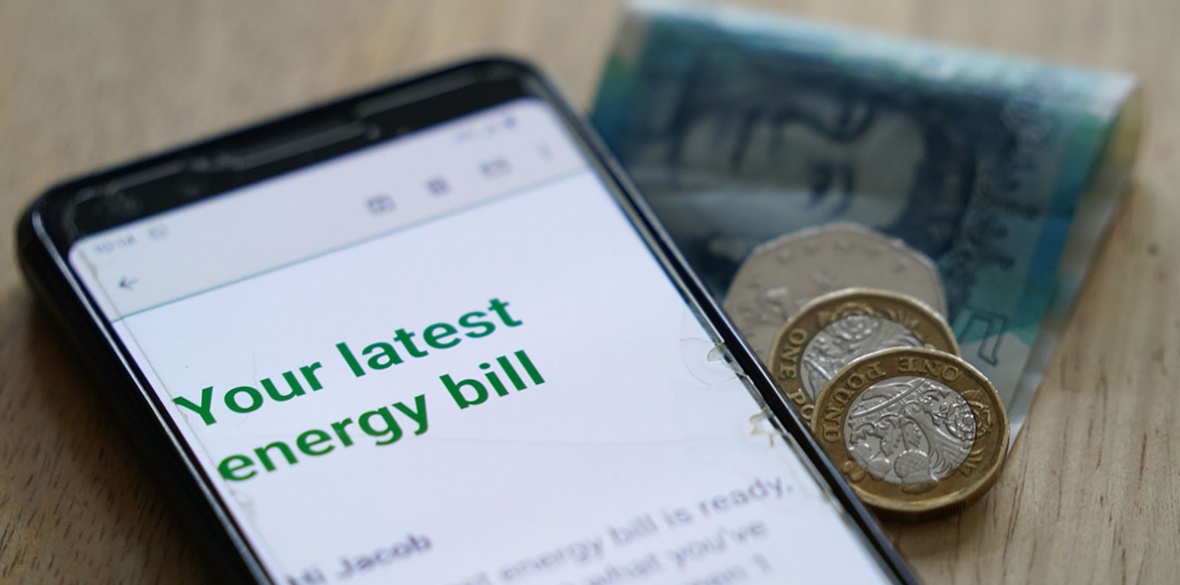This is the last article you can read this month
You can read more article this month
You can read more articles this month
Sorry your limit is up for this month
Reset on:
Please help support the Morning Star by subscribing here
FAMILIES will spend nearly a 10th of their income on energy next year, an analysis of the latest inflation figures shows.
Consumer Prices Index (CPI) inflation fell to 10.5 per cent in December, down from 10.7 per cent a month earlier, the Office for National Statistics (ONS) said today.
But cost pressures remained intense for struggling households, with food and drink prices soaring yet again to 16.8 per cent, the highest level since September 1977.
Labour Party analysis shows that the average household is set to spend 9 per cent of its disposable income on energy in 2023-24; that compares with 3 per cent at the beginning of the current Parliament in 2019-20.
It matches the amount families spend on food — 9 per cent — while they spend 8 per cent on transport.
Energy costs are also set to surge further in the spring when the government scales back its support package, limiting gas and electricity bills to an average £3,000 a year, up from £2,500 currently.
The actual energy price cap applies to the price per kilowatt/hour (34p for electricity and 10p for gas), with the £2,500 figure based on supposed average household use, so many people do pay more than the headline figures.
Trade union leaders have warned that ministers must come forward with credible public-sector pay offers to help workers.
TUC general secretary Paul Nowak said: “Inflation remains higher than the pay rises most workers are getting and far higher than the pay offers [Prime Minister] Rishi Sunak is trying to force onto millions of workers.
“Instead of rushing in unfair and unworkable laws that attack the right to strike, ministers should be fully focused on public-sector pay negotiations.”
Unite union general secretary Sharon Graham said that the slight drop in CPI inflation does little to change the continuing cost-of-living crisis.
She said: “Profiteering is at obscene levels across the economy, and the government remains intent on forcing workers to pay for a crisis not of their making.
“The question of ‘who pays?’ is still being answered at the expense of workers and communities.
“The truth of the matter is that the inflation crisis cannot be confronted in any real sense until runaway profiteering is challenged, head-on.”
Simon Francis, co-ordinator of the End Fuel Poverty Coalition, said:
“While inflation may have dropped back from its peak, the pain felt by people up and down the country by high prices remains.
“News that energy bills are now accounting for such a high proportion of people's spending will hurt the most. As temperatures continue to be dangerously low, the government's failure to keep the most vulnerable safe becomes more obvious.
“[Tomorrow] will see the publication of excess winter deaths figures for last winter and it will highlight the human cost of the energy bills crisis.”
In the Commons, shadow chancellor Rachel Reeves said that the huge energy bills is a “mark of Tory failure on energy security and economic competence.”
Chancellor Jeremy Hunt said the government was focused on bringing down inflation and was providing support for households.









